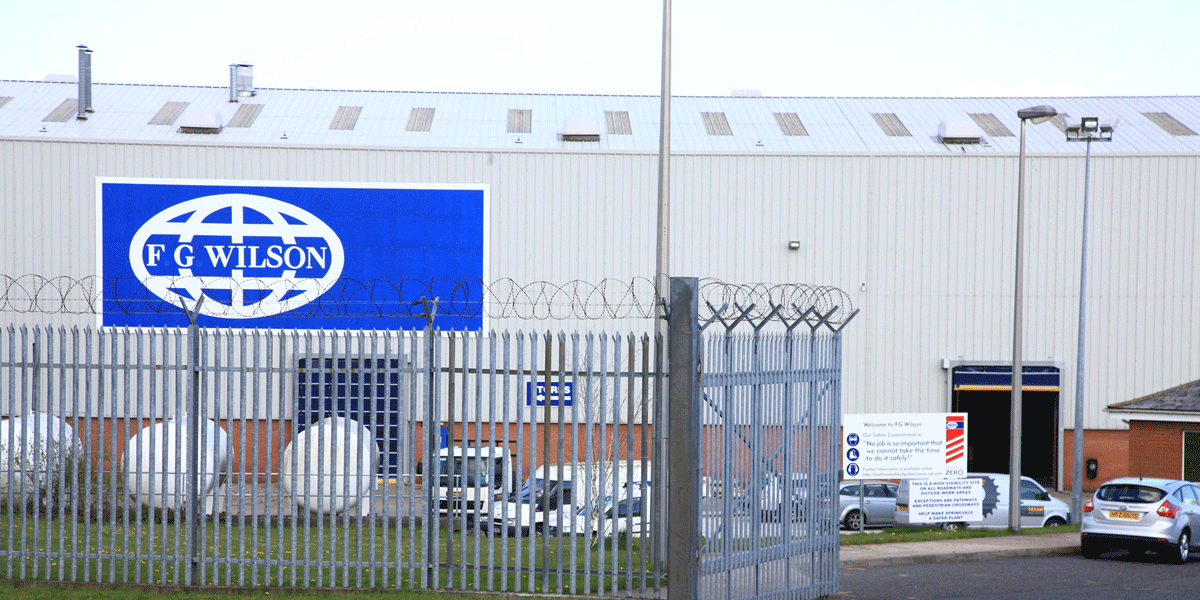IT’S BAKING hot here in America. Expect, therefore, the price of your Weetabix to soar next year because in the mid-west of the US – the world's breadbasket – the wheat harvest has been decimated by a drought of biblical proportions.
But amidst the reports of the cost of global warming – the Alaskan Highway is disappearing as the ice below it melts, I read today – I also spy in The New York Times reports about an industrial hotspot which links the city of Joliet, 40 miles south of Chicago in Illinois, and Belfast.
For in an industrial plant in Joliet – a city half the size of Belfast – two formidable forces have locked horns in an epic battle: Caterpillar, maker of bulldozers and diggers and a global behemoth, and the workers of the International Association of Machinists, one of the best-organised unions in the States.
For the past 12 weeks, the 780 workers at the Joliet Caterpillar plant have been on strike, protesting against company demands that they accept a SIX-year wage freeze and a pension freeze too.
In US terms, the workers at Caterpillar are not overly-compensated. If you have worked there over seven years, a skilled machinist, manufacturing parts of machinery used in many Caterpillar products, can make around £36,000. The junior third of the workforce takes home about half that amount: £18,000.
At a time when America is racked by recession and unemployment is above eight per cent nationwide, corporations like Caterpillar, you might suggest, have to take these tough decisions in order to, as indeed management told the Times, “remain competitive”.
Certainly, no-one should conclude that the company is bluffing when it insists workers in Joliet will have to accept its way or the highway.
And as it happens, in London, Ontario, last year when Caterpillar similarly clashed with its Canadian workers who refused to accept its “need” to copperfasten its “future competitiveness”, the firm shuttered the plant and threw workers refusing to accept a 55 per cent wage cut on the dole.
But here's the rub: the company isn’t playing hardball with its workforce in Illinois and in Canada because it is on its last legs or because it’s struggling to compete – far from it. Last year, Caterpillar made £3.2 billion (yes, billion). 2012 is shaping up, say company bosses, to come in even better. How much, then, is enough? For Caterpillar, £3.2 billion clearly isn't.
All of which is a sign of the breakdown in the traditional compact between US workers and corporate executives. There was a time when corporations, even while pursuing fair profit, cared about their workers and the communities in which they were based. Not so today, when executive pay is rising and conditions on the shopfloor are deteriorating. In fact, last year, Caterpillar's executives enjoyed pay rises and substantial bonuses.
And what does all this mean for Belfast? That's still to be seen, but what we do know is that Caterpillar is the parent company of FG Wilson, which recently announced 260 lay-offs at its plants in West Belfast, Larne and Mallusk. In part, these lay-offs come as the generator manufacturer moves production to China – where, coincidentally, they don't strike as much and take home considerably less than your Belfast Joe or Josephine.
FG Wilson was once regarded as one of our greatest employers – even if, until it opened its West Belfast plant, its fair employment record was poor. Today, under the Caterpillar brand, it remains a good employer, providing much-needed employment and producing world-class products.
But be warned: if the executives at Caterpillar, which has its global headquarters effectively just down the road from Joliet in Illinois, regard American workers as fair game, God alone knows how they regard their Irish workers.






